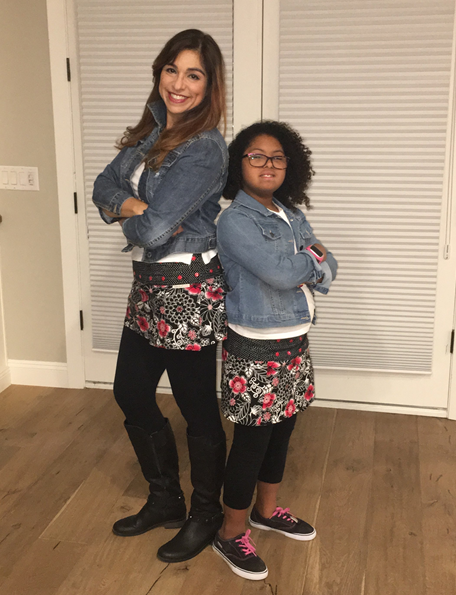
Karla Phillips, a long-time advocate for both school choice and inclusion, realizes she may need to change her personal and policy focus as she begins researching the best middle school for her daughter, Vanessa.
Editor's note: Today's post was written expressly for redefinED by education policy veteran and choice advocate Karla Phillips of Phoenix.
I love seeing new posts on the National Catholic Board on Full Inclusion Facebook page. It’s so encouraging to see the increasing number of schools welcoming students of all abilities.
But when I find myself daydreaming about my daughter perhaps becoming the first girl with Down syndrome to attend an elite school in our area, like Phoenix Christian or Xavier Prep, I have to stop and wonder—am I ready to be a pioneer?
Parents of students with disabilities take incredible leaps of faith when they enroll their children as the “first” in a school. Some make the choice because they are pursuing a faith-based education. Others may be driven to the decision because nothing else has worked for their child.
Regardless of the reason, these parents and their children are forgoing more traditional territory – district schools with formal programs, therapies, etc. – to become pioneers of inclusion and school choice. And that’s not an easy decision.
I have spent a fair share of my career fighting for school choice and supporting the efforts of state leaders to create as many opportunities as possible for students, especially those with disabilities. But now I am the parent and my daughter is the student. And we are faced with the decision of where to enroll for middle school.
When I was looking for my daughter’s first school six years ago, prospects were grim. More often than not, I was “counseled out” of the schools we were considering. We eventually found a wonderful school, but it wasn’t an easy task.
This time around, I’ve noticed a change.
More schools are willing to discuss the possibility of Vanessa enrolling. And while they would enjoy having Vanessa as a student, they’re not sure they’re prepared. A common refrain has been, “We have never had a child with Down syndrome.”
I often joke: “Neither have I.”
Despite their kindness, a message rings loud and clear: Many schools feel neither prepared nor equipped to welcome students with disabilities.
A new report from the Center for Reinventing Public Education examined how parents of children with disabilities choose their school. These parents reported similar experiences to mine. One parent explained that, “the lack of expertise is an urgent barrier for successful inclusion.”
In fact, CRPE’s new research uncovered a surprising truth:
“Having more choices without quality special education programming feels worse to families with children with disabilities than no choice at all, even if having more options makes the community as a whole better off.”
We’re told we have choices, but we feel like we don’t because schools aren’t ready to serve our kids. This isn’t what we have fought for.
I have spoken with some of the pioneers – parents of students with disabilities who have taken the leap into school choice – and their stories are often the same. The parents are either directly or indirectly finding the needed resources or services for their children.
The researchers at CRPE also found that “some parents had used their insurance or out-of-pocket funding to support their child, a potential barrier to educational access for some families.”
I have proudly pronounced myself an advocate for both school choice and inclusion, but I am realizing that I might need to change my personal and policy focus.
States are increasingly offering parents more school choice options. But for these choices to be truly viable options for all students, we need to identify ways to empower and equip schools and educators who will both welcome our children and help them reach their full potential.
Karla Phillips is senior director of policy for KnowledgeWorks, and with more than 20 years' experience, she is a seasoned veteran of education policy. As the mother of a daughter with Down syndrome, her passionate advocacy for all students has carried over into special education and disability policy. She is a graduate of Indiana University and received a master’s degree in public administration from Arizona State University. She lives in Phoenix with her husband and children.